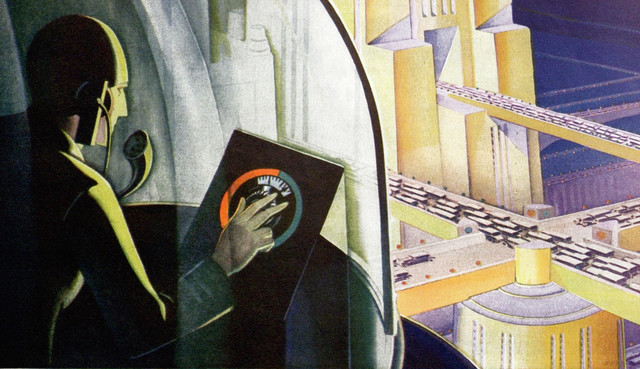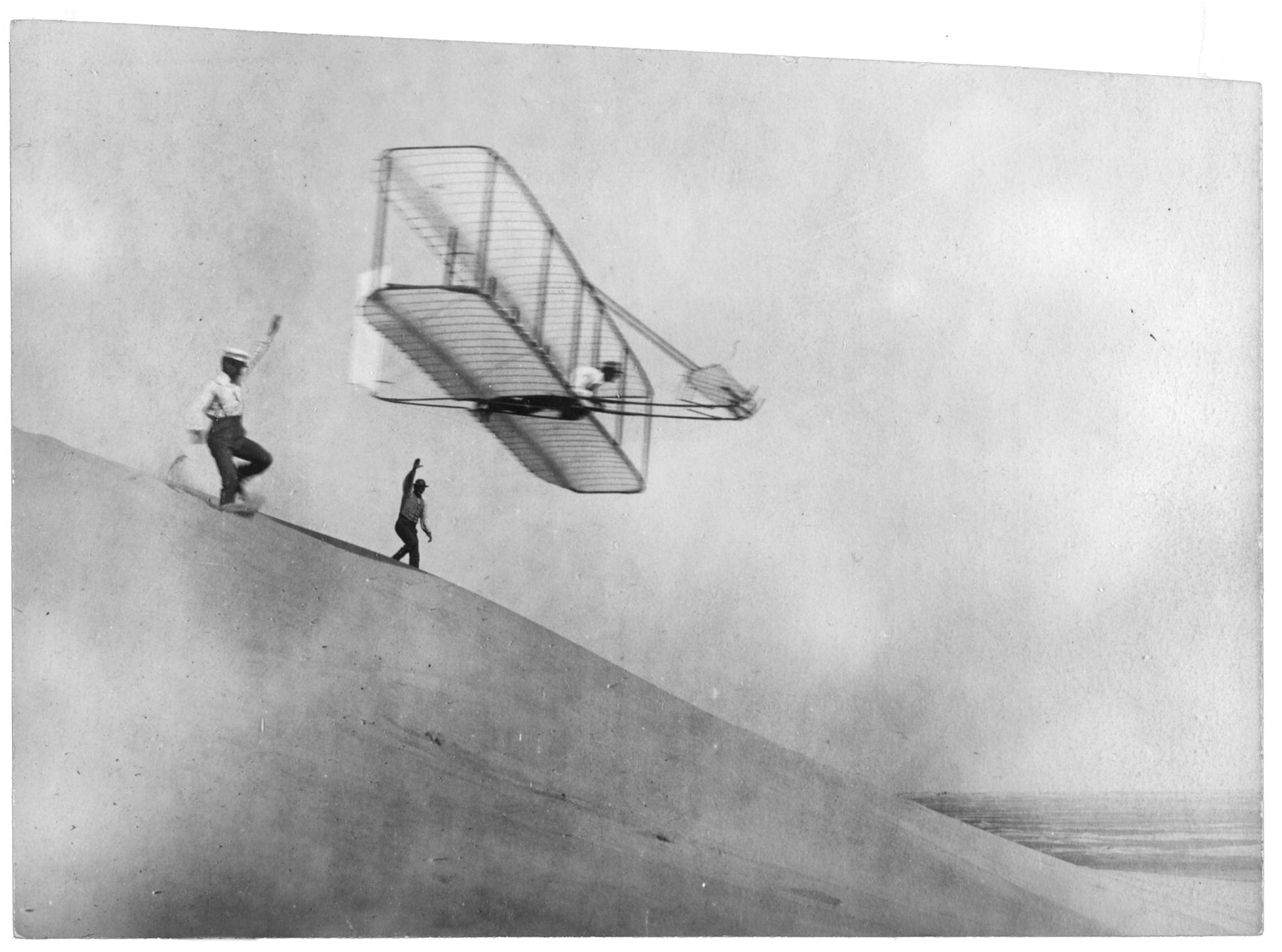
“I prefer drawing to talking. Drawing is faster, and leaves less room for lies.”
Category Archives: Uncategorized
Entrepreneurship is a Mindset
If you’re seeking wisdom on the nature of entrepreneurship, look to art, literature, and popular culture. For example, in my experience the best guide to the nature of vision and leadership is that seminal fictional character Don Quixote. His story epitomizes how courage and clarity of vision can win the hearts and minds of others. And who hasn’t learned the brass tacks of power and influence by watching Tony Soprano in action?
If you’re open to it, there’s a wealth of inspiration and insight to be had out in the world, like this fabulous profile of entrepreneur and racer Dave Marcis:
Whether or not you’re interested in racing, if you want to know what it’s like to think like an entrepreneur, it’s well worth its seven minutes of run time.
I particularly love the segment that starts at the 3:28 mark, where Marcis talks about how running a small business on a shoestring budget taught him to be scrappier than scrappy. What caught my eye was this slogan hanging on the wall of his shop, pictured above:
“We have done so much, with so little, for so long, that we can now do anything
with nothing.”
This deceptively simple phrase captures the essence of entrepreneurship—that with enough persistence, optimism, and confidence, no challenge is too big. It reminded me of my favorite quote by Professor Howard Stevenson of Harvard Business School:
“Entrepreneurship is the pursuit of opportunity without regard to resources
currently controlled.”
When Dave Marcis talks about what he’s accomplished and how he’s done it, it becomes clear that his frame of mind was key to his success. Likewise, mindset is what enabled Elon Musk to go build rockets and cars, or Richard Turere to make peace with lions. It’s not about being in high tech, or living in Silicon Valley, or having access to a network of venture capitalists. It’s about what you tell yourself in your head: that you can build something new for the world, no matter what seems possible or reasonable.
Entrepreneurship is a mindset, one that allows you to do anything with nothing. When you decide to relentlessly pursue a dream no matter how little you’ve got, you’ve already taken the biggest step on that journey.
Unabashed Gearhead Gnarlyness: quadcopters
Why robocars and the Porsche GT3 are kissing cousins
Earlier this week Virginia Postrel published a great Bloomberg article titled Why Silicon Valley is Winning the Robocar Race. It’s a provocative look at what’s happening at the intersection of digital technologies and cars, and it also serves up a heap of great insights as to why Silicon Valley works the way it does. In it Virginia quotes digital big thinker and doer Brad Templeton, Stanford Revs Automotive Research Program Executive Director Reilly Brennan, and yours truly.
I really like the following passage:
The world of software — Google’s world — also produces a different mindset from the world of traditional car manufacturing. “Software companies have an amazing ability to release something un-perfect and slowly work their way up,” says Brennan, the executive director at Revs. Consumers anticipate progress, making early adopters more tolerant of flaws and shortcomings.
Of course, early automobile adopters were also tolerant. Silicon Valley is where Detroit was in the 1920s or ’30s, when cars were the newly indispensable technology. Its critics are culturally marginal, while its products remain touchstones of prosperity and progress. It’s only lightly regulated. Silicon Valley’s ever-optimistic innovators assume that if they’re doing something cool and important, nobody will seriously try to stop them. That cultural confidence — or outright cockiness — is as crucial as any particular technology to delivering on the decades-old promise of self-driving cars.
I also love her use of “robocars” instead of the usual “autonomous cars” phrase. It’s sounds so much more sexy and interesting. It’s like saying “sushi” instead of “cold, dead fish”, and I heartily encourage all of us to adopt it in lieu of the other one.
In the article I’m quoted as stating that even in the new Porsche GT3, “the entire experience is mediated by computers”, ergo the title of this blog post. The reason I said this is that with the new GT3, the steering, the suspension, the transmission, even the alignment of the rear wheels are all guided by computers. The computers aren’t driving the car, but they do help you drive the car, to give you the ultimate Porsche driving experience, even if you’re no Jeff Zwart when it comes to driving prowess. If you’re interested in learning more about the new GT3 and how its systems work, please check out the following video featuring GT3 product manager Andreas Preuninger:
Note well, product managers: Preuninger gives one helluva great product demo. If you can’t talk with this level of passion and insight about your product’s raison d’etre, you have to find a way to make that happen. Either make your product more exciting, or get more excited about it, or both! Excited product managers correlate very highly with amazing product experiences, and are likely even causal in achieving that outcome.
As an aside, I borrowed the image at the top of this post is from Virginia’s article, and it comes from a 1930 Saturday Evening Post advertisement. It depicts an engineer of the future controling an automated highway system of some sort. Doesn’t his control dial look a lot like a Nest thermostat?
Innovating. Doing, not talking.
Which of the following two propositions makes you want to put down the TV remote and go do something interesting with your life?:
“Let’s grab some coffee after lunch and talk about innovation.”
or
“I had a dream about how to make man fly – could you help me hack together a prototype for a couple of hours this afternoon?”
It’s the second one, right? It has to be.
Yes, it’s a good thing to get to know the many flavors of innovation from a theoretical point of view, but we’re all here to make a dent in the universe, right? That means doing stuff, and as with surfing or playing the piano, no amount of reading or talking about it will make you better. It’s all about cycles of doing it.
So where am I going with this? Well, the finale of Ron Finley’s TED talk made realized the folly of my ways on this blog. Here’s the key line:
… if you want to meet, don’t call me if you want to
sit around in cushy chairs and have meetings where you talk about doing some
shit — where you talk about doing some shit. If you want to meet with me, come
to the garden with your shovel so we can plant some shit.
My folly on metacool? Sadly, implying that nouns are more important than verbs. Henceforth, I will no longer refer to my Innovation Principles as such. From here on out, they are Principles for Innovating.
Doing, not talking.
Learning from Zanardi
This Great Recession of ours has forced me to learn a lot about myself, and to improve my approach to just about everything in my professional life. As an engineering student in college I learned what it meant to truly work hard, and since then I've considered myself a persistent, tenacious, and industrious person with an entrepreneurial approach to problem solving. I like to hurdle obstacles, and I like it when the constraints are tough. But over the past few years of global economic woe, figuring out how to still have a growth mindset — as well as how to bring people along with me in the groups I work with — has been a tough challenge. As a result, I had to try and radically improve myself and my approach to life in order to get to where I needed to be. I'm still trying, but I've gotten better.
Thankfully, I could rely on many people along the way to provide inspiration and guidance. I had someone giving me straight, unvarnished feedback. Another person acted as a role model and coach (a great combination if you can find it). And there was another person — who happens to be a race car driver — who gave me the best advice of all: keep your head down, focus, and keep cranking away. Just keep at it. All of them helped me realize that what I was doing wasn't enough, that I could do better, and that there was indeed a path to get there.
I've written about Alex Zanardi many times before here on the pages of metacool. He's truly one of my heroes. What Zanardi says to me is that no matter where you think you might be on the path to mastery and enlightenment, there's always more worth striving for. It's not about feeling that you're never good enough, for that's an energy-sapping state of being eternally bummed. Rather, it's about having the confidence to know that life doesn't reward finished products — it's staying on the path to mastery that counts, even when you're already pretty good. Zanardi, of course, has a way of becoming pretty good at everything he puts his mind to, and then going far, far beyond that point. As Dario Franchitti states in the video above, Zanardi doesn't know what the word "no" means. Plus, I'd wager he also probably doesn't know what "done" means, either. In Zanardi's mind, he can always be what he wants to be. And — most important of all — he knows that in his heart, too.
What have I learned from Zanardi? That tomorow we have the potential to be better than we are today, and that the decision to keep striving is all our own. We won't always succeed, and we'll all have setbacks, but man, the reward is in the pushing. It's not about being remarkble, it's about striving to be so.
When I wake up tomorrow morning, I'll be thinking of Zanardi, and I'll try my best to raise my game. I hope you will, too.
Email stinks
I’ve lost count of the number of misunderstandings, missed opportunities, and attenuated outcomes I’ve brought into being via the tips of my fingers. No, I’m not talking about mediocre blog posts, I’m speaking to the thousands of emails I send each year.
When it comes to the pursuit of creative outcomes, email stinks. I wrote a few weeks ago about the debilitating effect of sarcasm in a creative workplace. In that same context, email has its problems, too. With email, not only is it difficult to discern whether sarcasm is at play, but it’s also hard to confidently parse out things like humor, fear, anger, defensiveness, kindness, curiosity… you get the picture. And the give and take of a healthy in-person conversation becomes at best a somewhat disjointed verbal volley, at worst a damaging pissing match.
The solution? Whenever possible, talk. By phone, Skype, or even in person. Talk. Listen. Talk some more. Digest.
It’s so much better to talk in person. It is truly an imperative for teams and organizations pursuing any kind of creative outcome. Email simply can’t deliver the critical nuances which help shepherd a process along to greatness. And as critical as it is to talk directly with people within your own organization, it’s even more critical to do so with folks who sit beyond the confines of your four walls. While it’s even harder to find ways to talk face-to-face with “outsiders”, you have to try, because you can’t rely on things like a shared culture or mission to provide the mutual trust which bridge the inherent deficits of email conversation.
Of course, for messages which need a scale of delivery, email is still one of the only tools at our disposal, but hopefully that will change soon. Myself, I receive something over 300 emails a day, and I send something like 50.
Emailing is a necessary evil, but if you commit to talking more and emailing less, then I will, too.
Unabashed Gearhead Gnarlyness
metacool Thought of the Day
"When you come out of college, you’re raw. You have energy. You want
to experiment. You want to learn. You have hopes. You have aspirations.
You want be Oprah Winfrey.
You want to be Steve Jobs. You want to be Bill Gates. You want to be
all that. Slowly, over time, you lose it. And by looking in the mirror
every day as you get older, you fool yourself that you’re O.K. There
has to be another way of looking in the mirror and revisiting what you
really want to do.
So I would say, maybe at the end of college,
write it down honestly, in 100 words or whatever it is, and put it in a
box. I call it the magic box. Revisit it once a year or once every two
years and say, how honest are you to that? Don’t let anybody run your
life. That, in my mind, is very, very important. You should be in
control of your life"
14: Failure sucks, but instructs
Since you will fail when you take on the challenge of bringing something new in to the world, it’s useful to adopt the mantra of “Failure sucks but instructs”. Repeat that mantra a few times, and then hark back to Raney’s Corollary:
“you only learn when things start breaking“
None of us want to fail. But when we do, we have a choice to make: we can choose to learn from the failure, or we can choose to avoid dealing with what the world is trying to tell us. Time and time again, history shows us that innovators who get stuff done are also the ones who best learn from their failures, which may be legion. Think James Dyson cranking out thousands of vacuum cleaner prototypes, the Wright brothers crashing their kites and gliders over and over, and even the rational marketers at Amazon hypothesizing and testing across multiple web platforms each and every day. Each is a lesson in the power of success driven by cycles of failure coupled with learning.
Failure sucks, but instructs. The wisdom is out there. Can you accept it?
This is number 14 in a series of 21 principles of innovation. Your feedback is most welcome.


